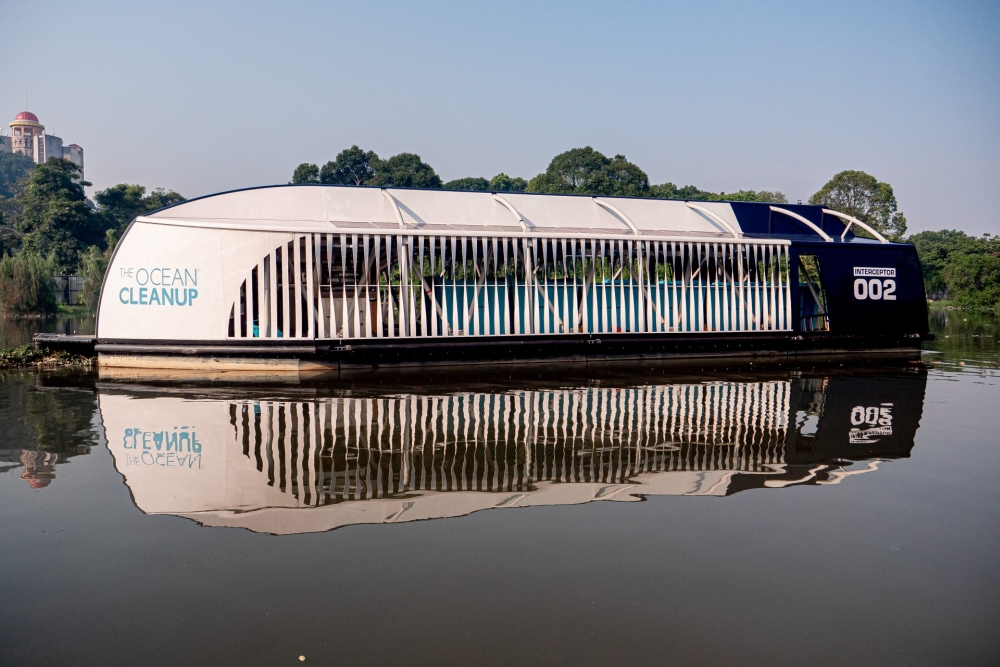The Ocean Cleanup Introduces New Interceptor That Cleans More Plastic From Oceans
Marching towards its mission to clean up floating plastic waste from the ocean, The Ocean Cleanup, a non-profit organization has introduced a new, third-generation interceptor that they claim is going to clean up the ocean more efficiently.
First introduced in 2019, the interceptor is powered by solar energy and can extract around 50,000 kilograms of plastic per day. It is environment-friendly and can operate 24 hours a day without making any noises and exhaust fumes
The Ocean Cleanup in its research has revealed that rivers are the main source of plastic waste in the ocean, estimating that around 80% of plastic waste in the ocean comes from rivers. The organization has set its goal to tackle the 1,000 most polluted rivers before the end of 2025.

The Ocean Cleanup introduces new interceptor to clean ocean plastic more efficiently | Image: The Ocean Clean
CEO and Founder of The Ocean Cleanup Boyan Slat said,
We’ve found that we can still further reduce the cost, the ease of rollout and the ease of assembly to really speed up the deployment as much as possible while also making it more efficient. We found that the previous Interceptor often would clog when it comes to very large debris. So widening that will help also improve the reliability of the operation..
As of now, The Ocean Cleanup has three working interceptors. These interceptors are installed in Klang River in Klang, Selangor, Malaysia, Cengkareng Drain in Jakarta, Indonesia and Rio Ozama, Santo Domingo, Domician Republic. It has also partnered with Finnish manufacturing and Logistics Company Konecranes to build 10 more interceptors and to deploy them all over the world. The Ocean Cleanup has pledged to clean up 90% of floating plastic waste from the oceans by 2040.
Plastic waste over the decades has choked our oceans and has emerged as a threat to marine biodiversity and wildlife. As per the International Union of Conservation of Nature |(IUCN), every year, about 8 million tons of plastic waste end up in the ocean. The Centre of Biological Diversity has estimated that by 2050, plastic waste will outweigh all the fishes in the sea.
Via: CNET


